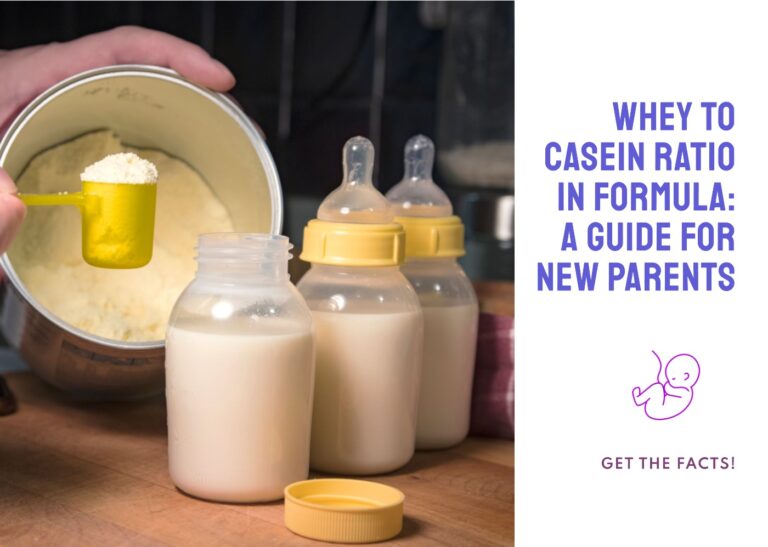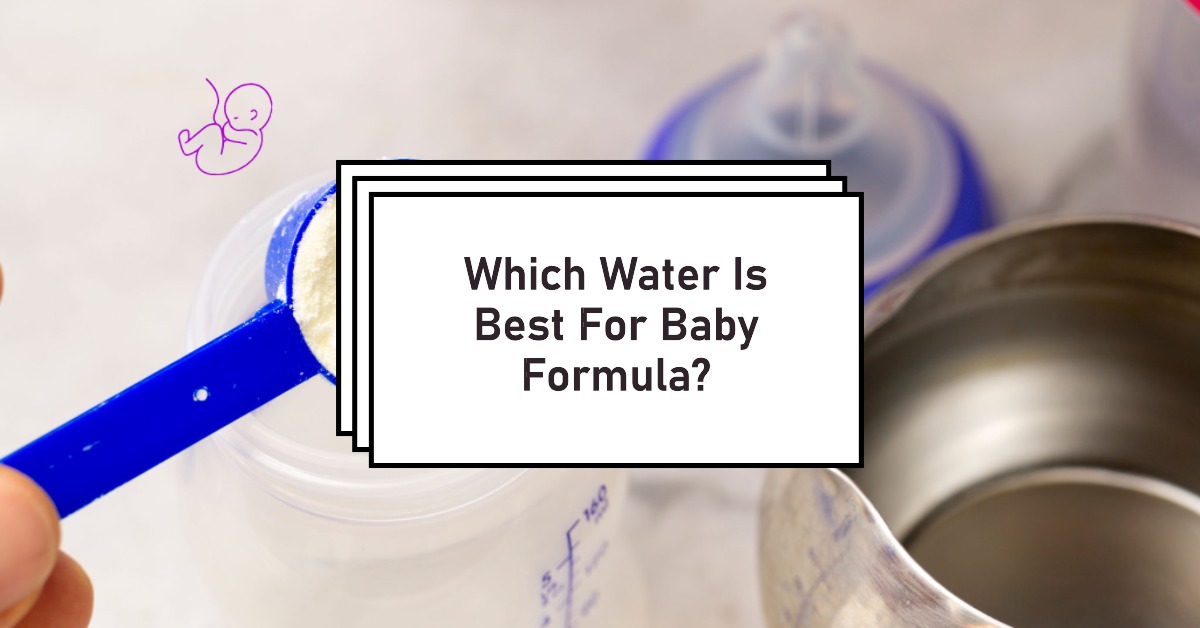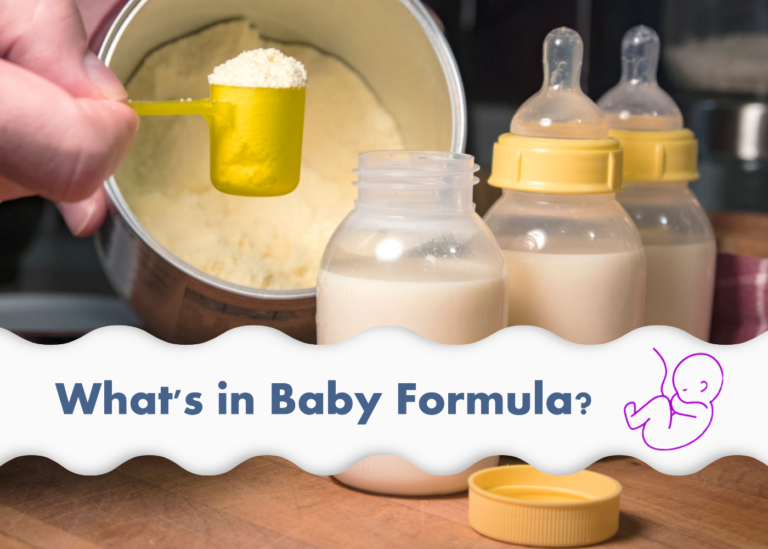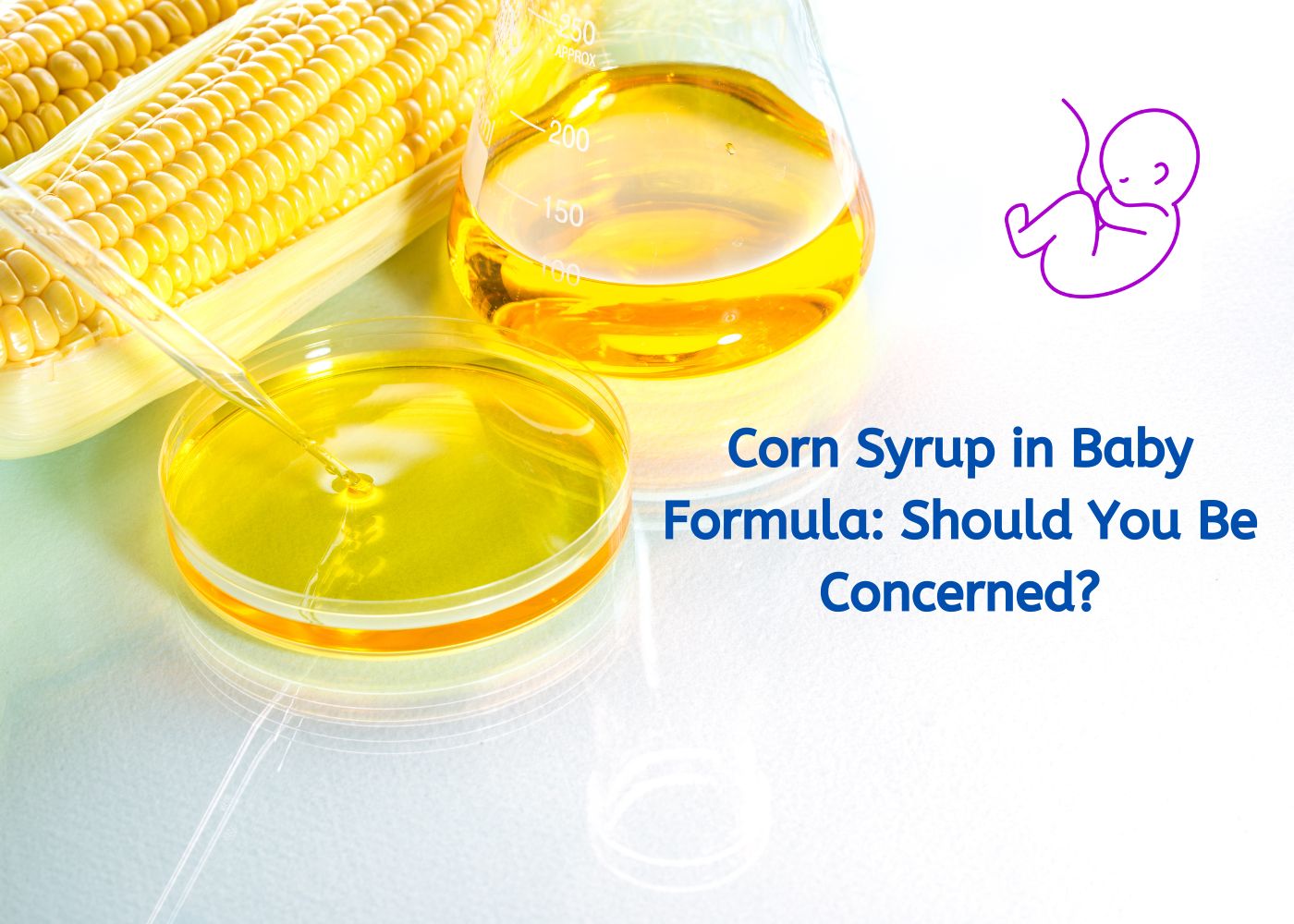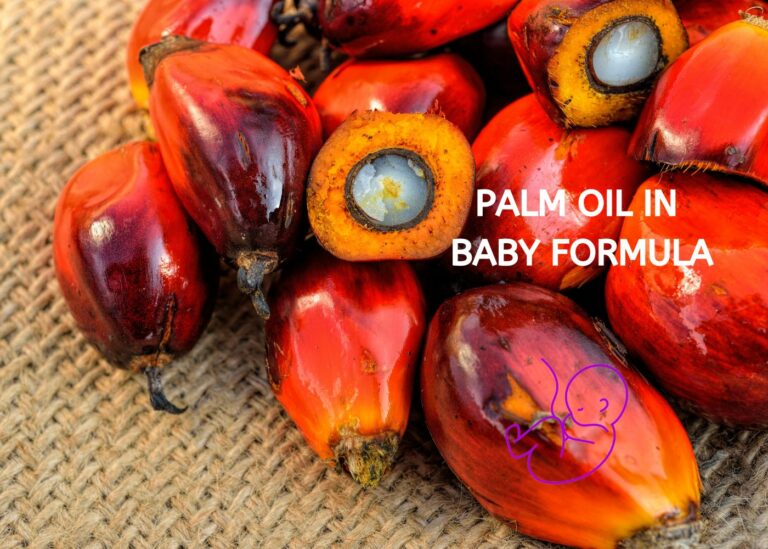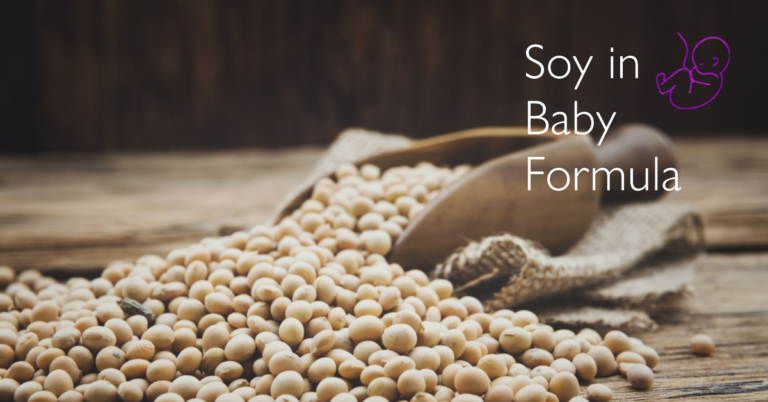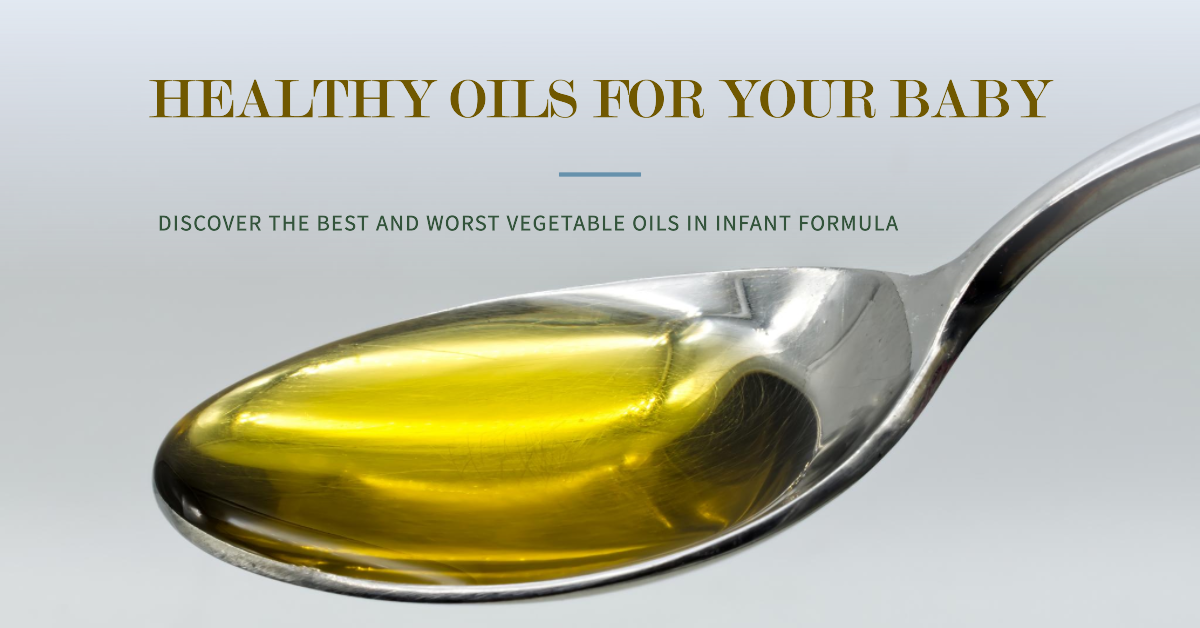
Vegetable oils have had a lot of criticism as well as praise over the past few years.
Baby formula has vegetable oils, but are they all healthy?
Quick answer: no
Not all vegetable oils are created equal.
This article aims to help new parents understand which vegetable oils are healthy and which are better avoided in infant formula.
After reading this post, you will have the information to choose the best formula for your baby.
Let’s get after it!
Related read: Seed Oils in Baby Formula | Best Formulas Without Harmful Seed Oils
Our Short Answer and Key Takeaways
If you are a parent, always check the nutrition label on any food you give your baby, including formula, and make sure it contains as few vegetable oils as possible. Always look for organically sourced ingredients and the least amount of oils in infant formula.
Here are the key takeaways from our study:
- Not All Oils are Equal: Vegetable oils in baby formulas aim to replicate the fatty acids in breast milk, but not all achieve this effectively or safely.
- Coconut Oil Stands Out: Rich in Medium-Chain Triglycerides (MCTs) and beneficial for brain health, weight management, and heart health. It also provides the calories essential for infant growth.
- Watch Out for GMOs and Potential Allergens: Soy oil, for instance, has concerns related to GMOs and potential allergens. Ensure to look for non-GMO labels and consider potential allergic reactions.
- Environmental Considerations: Palm oil’s production has notable environmental concerns. Environmentally conscious consumers should look for organically sourced palm oil or avoid it altogether.
- Organic is Preferable: Organic formulas, especially those with certifications like USDA or EU Bio, ensure a higher percentage of organic content, translating to less processing and potentially safer ingredients.
- Whole Milk Formulas: Brands like Kendamil and Nannycare use whole milk, reducing their reliance on vegetable oils and offering better nutritional value with the inclusion of MFGM (Milk Fat Globule Membrane)
Recommended reads: Benefits of Organic Baby Formula | How to Choose the Best Organic Formula
Why is there vegetable oil in baby formula?
Baby formula has vegetable oil for an excellent reason:
It is there to copy the fatty acids found in breast milk.
All infant formulas, whether plant-based or milk-based, contain fat blends of vegetable oils to provide essential fatty acids to your baby, much like human breast milk.
The most common oils in baby formula ingredients are palm olein, soy, coconut, high oleic sunflower, and high oleic safflower.
Vegetable oils in baby formulas are a rich source of healthy fats such as Omega 3 and 6.
Types of Vegetable Oils in Infant Formula: Analyzed and Ranked
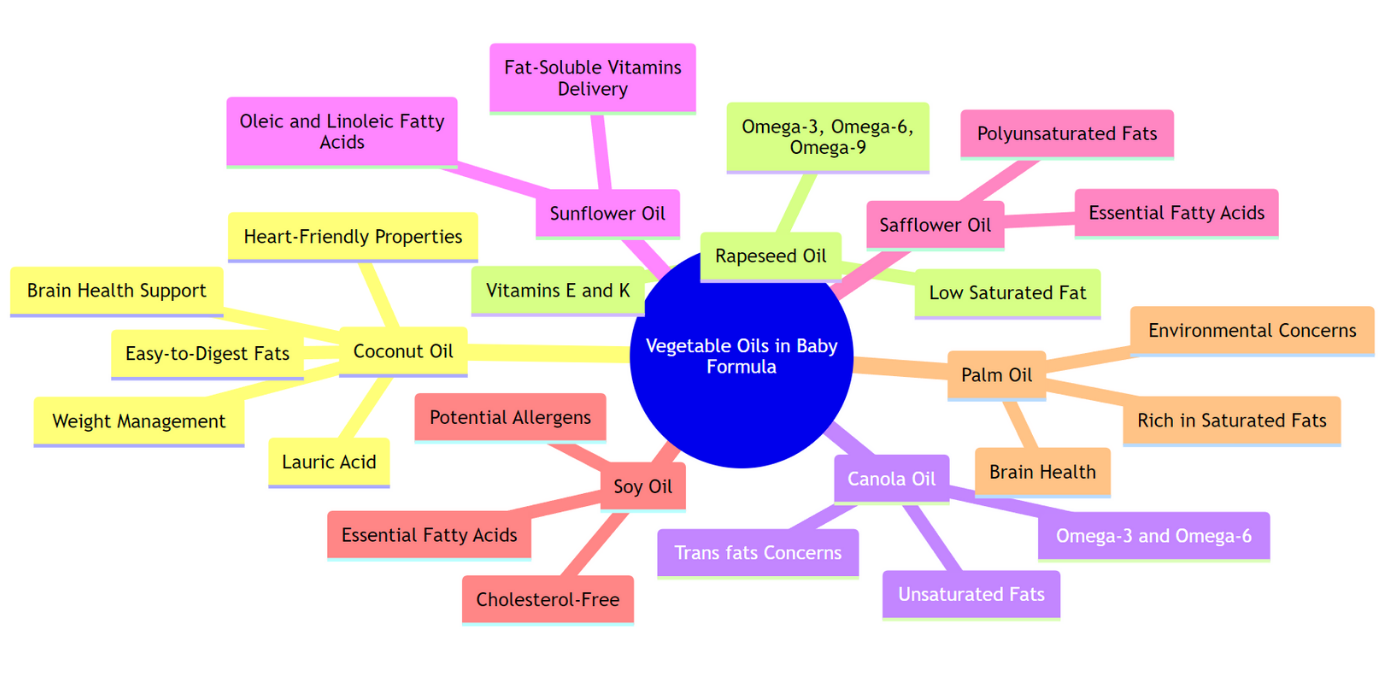
1. Coconut Oil
Coconut oil provides the calories babies need to grow and is rich in lauric acid, a nutritional supplement. It is high in saturated fat, which is perfect for growing babies.
- Easy-to-Digest Fats: Unlike many other oils, coconut oil has special fats called Medium-Chain Triglycerides (MCTs) that are easier to digest. These fats can also help burn other fats, making coconut oil healthier.
- Brain Health Support: When digested, the unique fats in coconut oil create substances called ketones. These ketones are like fuel for the brain and might be beneficial in supporting brain health. Some researchers believe this could be helpful for conditions like Alzheimer’s, although this is more relevant to adults.
- Weight Management: Studies have shown that the MCTs in coconut oil could help manage weight compared to other fats. This is because they help burn other fats and can be a good choice for maintaining a healthy weight.
- Heart-Friendly Properties: Some studies suggest that coconut oil can be heart-friendly by raising good cholesterol levels.
- Rich in Healthy Saturated Fats: Coconut oil is rich in saturated fats, particularly lauric acid, known for its health benefits. However, because it’s high in saturated fat, it’s best to use it in moderation.
2. Rapeseed Oil
Rapeseed oil is rich in omega-3 fatty acids, which benefit infant growth. It also contains linoleic acid, another valuable fat for infants. However, it’s important to note that while it boosts EPA, it does not boost DHA, both of which are essential for babies’ healthy growth and brain function.
- High in Omega-3, Omega-6, and Omega-9 fatty acids are crucial for infant growth and brain development.
- Vitamins: Excellent source of vitamins E and K, essential for a child’s growth and immune system support.
- Low Saturated Fat: It has the lowest levels of saturated fat among culinary oils, making it a healthier fat choice for infant formulas.
- High Smoke Point: Remains stable at high temperatures, making it a safe choice for cooking if you ever need to prepare homemade baby food (outside formula feeding).
3. Canola Oil
Canola oil is a type of vegetable oil that contains a high amount of polyunsaturated fats, more than olive, coconut, and other vegetable oils. It is derived from rapeseed oil, rich in the omega-3 fatty acid called alpha-linolenic acid.
- Rich in essential fatty acids like Omega-3 and Omega-6, which are crucial for the infant’s growth, brain development, and overall health
- Unsaturated Fats: High content of unsaturated fats, considered heart-healthy fats important for infant nutrition.
- Omega-3 Alpha-Linolenic Acid (ALA): Contains Omega-3 alpha-linolenic acid (ALA), which supports heart health and infant growth and development.
- Trans fats: There are concerns about trans fats in canola oil, but only if consumed in high quantities.
4. Sunflower Oil
Sunflower oil is rich in linoleic acid, an omega-6 fatty acid that helps babies grow and stay healthy. It also contains vitamin E, a fat-soluble nutrient that protects cells.
- Contains oleic and linoleic fatty acids, crucial fats for babies that aid in their growth and neurological development.
- Fat-Soluble Vitamins Delivery: Helps deliver critical fat-soluble vitamins like A, D, E, and K, which are vital for the overall health and development of infants.
5. Safflower Oil
- Polyunsaturated Fats: Known for its polyunsaturated fat content, which helps promote the immune system and might lower the risk of heart disease later in life.
- It provides essential fatty acids and helps absorb fat-soluble vitamins, contributing to the overall nutritional adequacy of infant formula.
6. Soy Oil
Soy oil provides essential fatty acids that babies need to grow. It is rich in heart-healthy polyunsaturated fatty acids and contains many omega-3 fatty acids.
- Essential Fatty Acids: Soy oil contains linoleic acid (omega-6) and alpha-linolenic acid (omega-3), essential fatty acids babies need for growth and development, especially brain development.
- Cholesterol-Free: Soy oil is plant-based and, therefore, does not contain any cholesterol, making it a suitable option for dietary considerations. (only for babies with cholesterol problems)
- Vitamin E: Soy oil is a source of vitamin E
- Potential Allergens: Soy is one of the common allergens, and some babies might be allergic or sensitive to it. Although the risk is low with refined oil, it’s something to consider.
- Omega-6 to Omega-3 Ratio: While soy oil does contain essential omega-3 and omega-6 fatty acids, its ratio leans more towards omega-6. A high omega-6 to omega-3 ratio is not considered ideal for health.
- GMO Concerns: A large portion of soy grown globally is genetically modified. If the soy oil in baby formula is not specified as non-GMO, there might be concerns regarding its source.
Related read: Best Formulas Without Soy Oil
7. Palm Oil (Only if Non-Organic)
Palm oil contains palmitic acid, a fatty acid closely resembling breast milk. However, the amount of processing required and the environmental impact takes palm oil down the list. If it’s organic, it’s better than many of the previous oils.
- Rich in Saturated Fats: Palm oil has significant saturated fats vital for babies’ growth and brain development.
- Brain Health: Like in coconut oil, saturated fats in palm oil are critical for brain health, especially during early developmental stages.
- Beta-Carotenes: Red palm oil, particularly, is rich in beta-carotenes, precursors to vitamin A, essential for vision, growth, and immune functions.
- Palm Olein and Calcium Absorption: Some formulas use palm olein (a fractionated part of palm oil), which is associated with reduced calcium and fat absorption. This can potentially lead to harder stools or constipation in some infants.
- Environmental Concerns: Palm oil production has been linked to deforestation, habitat destruction, and other environmental issues. This is a significant concern for many environmentally-conscious consumers.
- GMO Concerns: Though not as common as soy, there are also genetically modified palm versions. Consumers may want to ensure the palm oil is from non-GMO sources.
Related read: Best Formulas Without Palm Oil
Is vegetable oil safe in baby formula?
Yes, vegetable oil is safe in baby formula.
However, the type of oil and the processing method can impact the formula’s safety and nutritional value.
This is why we should always look for formulas with the least amount of processing possible. Organic formulas are one example of this, as are brands that have specific certifications.
- United States:
- USDA-certified organic formulas:
- Must contain at least 95% organic ingredients.
- Burt’s Bees has USDA-certified organic baby formulas.
- FDA regulations:
- Ensure formulas meet federal nutritional and labeling requirements.
- USDA-certified organic formulas:
- Europe:
- EU Bio (organic) certification:
- Requires a minimum of 98% organic content.
- Comprehensive management ensures the highest-quality ingredients.
- No preservatives or synthetics are added at any point.
- Biodynamic certification:
- Holle is a brand that is certified biodynamic, which is considered a step beyond organic.
- EU Bio (organic) certification:
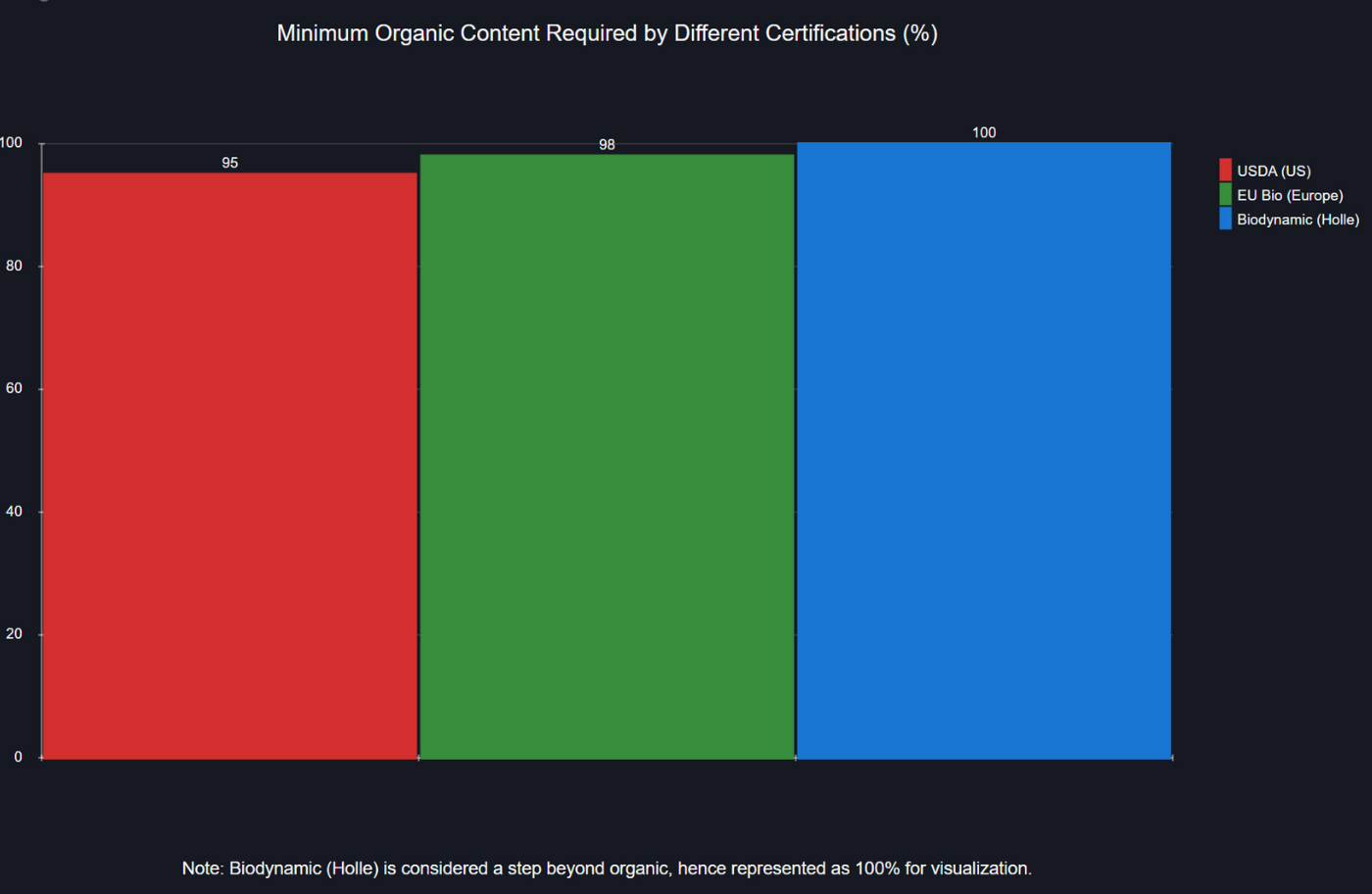
- USDA (US) requires at least 95% organic content.
- EU Bio (Europe) mandates a minimum of 98% organic content.
- Biodynamic (Holle) is considered a step beyond organic, hence it’s represented as 100% for visualization purposes.
Can Vegetable Oils Cause Allergies in Babies?
Yes, vegetable oils can potentially cause allergies in babies.
Soy is a common food that babies can react to. If breastfed, they may or may not react to food proteins the mother eats that pass through her breast milk. Formula-fed infants with soy allergy may not tolerate the food proteins (such as milk or soy) in infant and toddler formulas.
Is there a formula without vegetable oil?
All baby formulas have fat blends of vegetable oils; what changes is the quantity and how they are sourced and processed. As we said above, the best thing to do is to look for organic formulas with the least amount of types of vegetable oils.
Some formulas, like Kendamil and Nannycare, use whole milk instead of skimmed milk for their formula, adding milk fats, which is much better than relying exclusively on vegetable oils.
Chart: Comparing Vegetable Oils in Different Baby Formula Brands
| Formula | Palm Olein/Palm | Coconut | Soy | High Oleic Sunflower | Canola | High Oleic Safflower | Sunflower | Rapeseed |
|---|---|---|---|---|---|---|---|---|
| Enfamil Neuropro | ✅ | ✅ | ✅ | ✅ | ❌ | ❌ | ❌ | ❌ |
| Similac Advance | ❌ | ✅ | ✅ | ✅ | ❌ | ❌ | ❌ | ❌ |
| Bobbie | ❌ | ✅ | ❌ | ✅ | ✅ | ✅ | ✅ | ❌ |
| Happy Baby | ✅ | ✅ | ✅ | ✅ | ❌ | ❌ | ✅ | ❌ |
| Earth’s Best | ✅ | ✅ | ✅ | ✅ | ❌ | ✅ | ✅ | ❌ |
| Gerber Good Start | ✅ | ✅ | ✅ | ✅ | ❌ | ✅ | ❌ | ❌ |
| Kendamil Organic | ❌ | ✅ | ❌ | ✅ | ❌ | ❌ | ✅ | ✅ |
| Hipp Dutch | ❌ | ❌ | ❌ | ✅ | ❌ | ❌ | ✅ | ✅ |
| Holle | ✅ | ❌ | ✅ | ❌ | ❌ | ❌ | ✅ | ✅ |
| Byheart | ❌ | ✅ | ❌ | ✅ | ✅ | ❌ | ✅ | ❌ |
- Palm Olein/Palm Oil: Used by Enfamil Neuropro, Happy Baby, Earth’s Best, Gerber Good Start, and Holle.
- Coconut Oil: Present in almost all formulas except Hipp Dutch and Holle.
- Soy Oil: Found in Enfamil Neuropro, Similac Advance, Happy Baby, Earth’s Best, Gerber Good Start, and Holle.
- High Oleic Sunflower Oil: Used by almost all formulas except Holle.
- Canola Oil: Only present in Bobbie and Byheart.
- High Oleic Safflower: Found in Bobbie, Earth’s Best, and Gerber Good Start.
- Sunflower Oil: Present in Bobbie, Happy Baby, Earth’s Best, Kendamil Organic, Hipp Dutch, Holle, and Byheart.
- Rapeseed Oil: Only present in Kendamil Organic, Hipp Dutch, and Holle.
Last Words
Vegetable oils can play a crucial role in child nutrition, both positively and negatively.
While all formulas contain a blend of vegetable oils, opting for those with organic certifications, fewer processed ingredients, and a clear stance on environmental concerns can make all the difference.
We’re Maria and Alberto, a married couple and educators who are nutrition enthusiasts. Even before we had kids, we were already crazy about nutrition.
We’d read scientific articles, watch videos from nutritionists, and spend hours listening to nutrition podcasts.
Today, we continue doing this, but in a different way, as we’ve learned to sift through the noise and trends. Nutrition, like any other field of knowledge, the more you read and learn, the more you develop a comprehensive understanding of reality, and that’s what has happened to us.
Before having our first child, we focused on learning everything we could about child nutrition, using the same techniques we had already employed, backed by our extensive knowledge in nutrition.
Our mission is to help other parents with their children’s nutrition, to help them become the best versions of themselves.
If we are what we eat and drink, which is absolutely true, let’s do it right!


